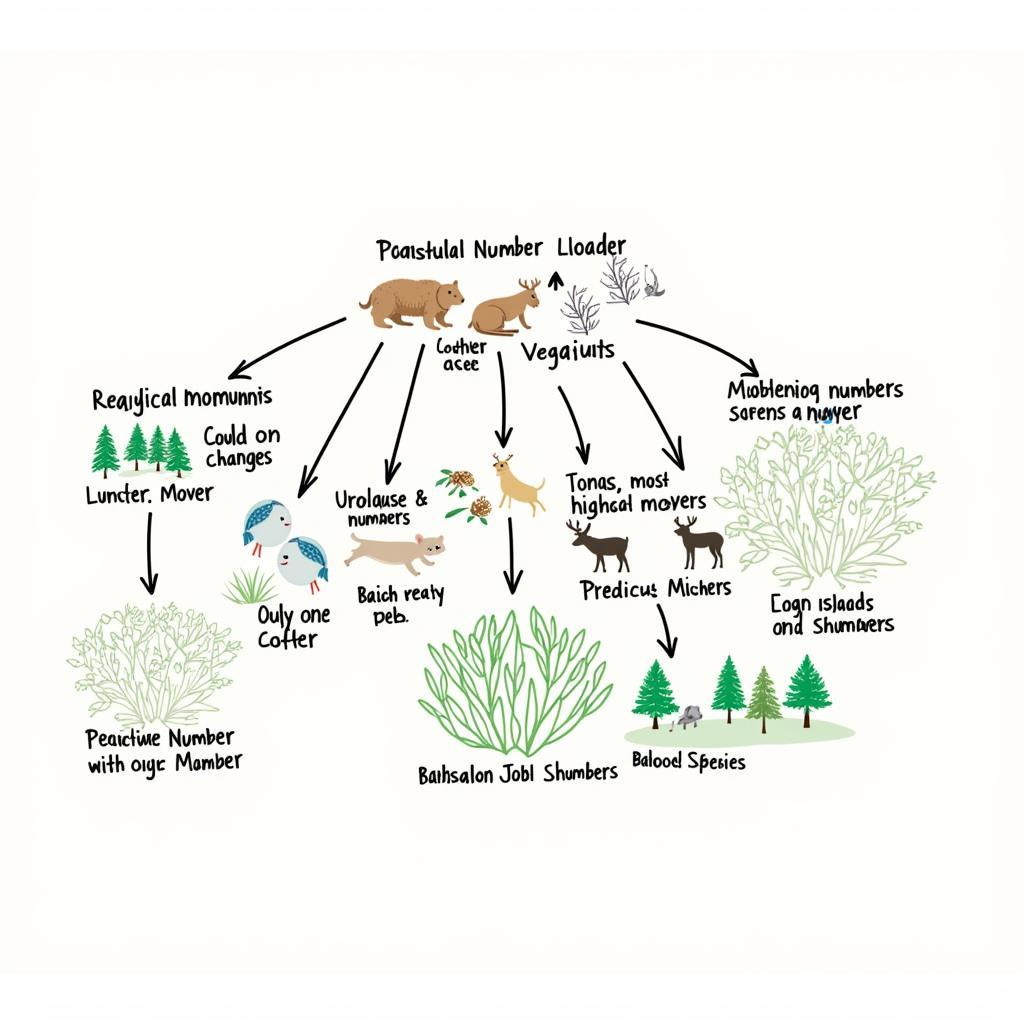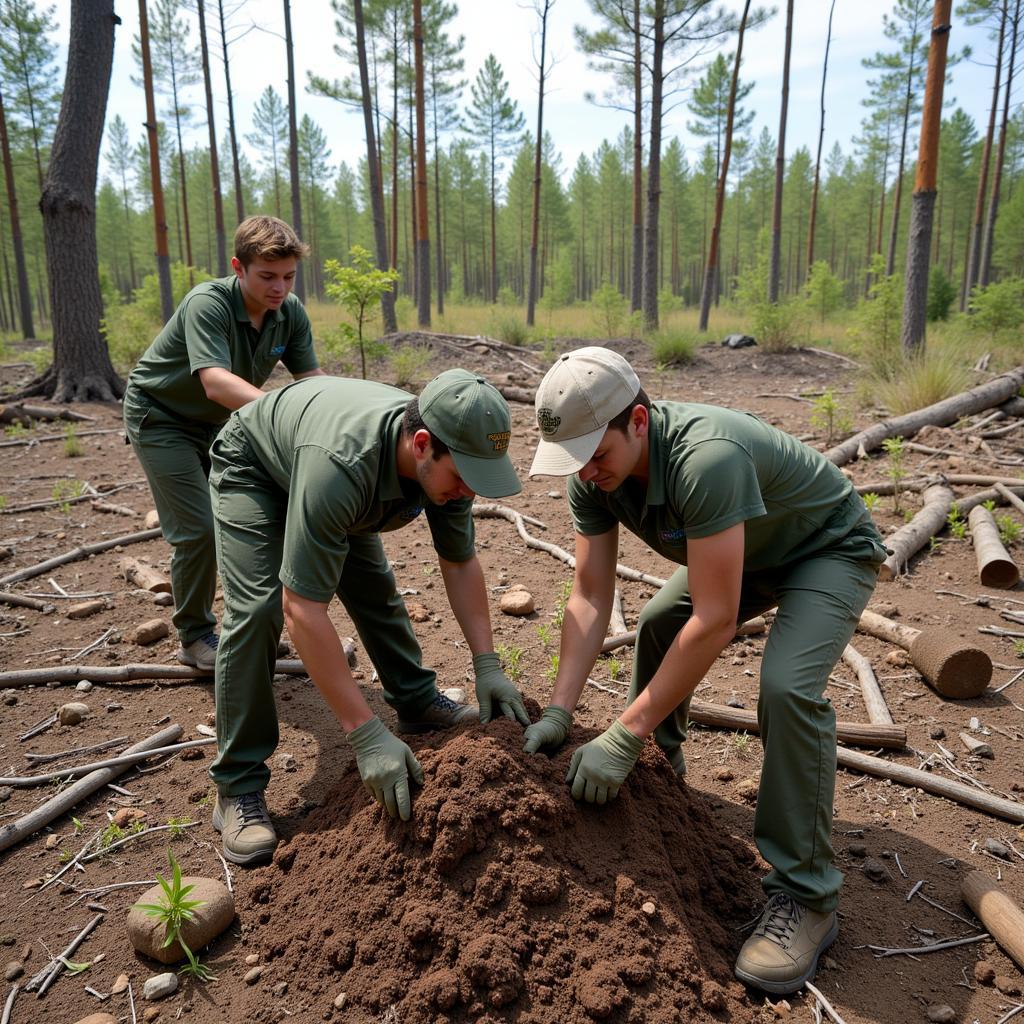Decoding Predator Numbers: Understanding Their Impact
October 29, 2024Predator Numbers, a crucial aspect of ecological balance, significantly influence the dynamics of ecosystems worldwide. These numbers, fluctuating due to various factors, play a vital role in maintaining biodiversity and ecosystem health. Understanding the intricacies of predator populations is essential for conservation efforts and ensuring the long-term stability of our natural world.
Factors Influencing Predator Numbers
Several factors contribute to the rise and fall of predator populations. These include prey availability, habitat quality, competition, and human intervention. Prey abundance directly impacts predator numbers, as a plentiful food source allows for increased reproduction and survival. Conversely, scarcity can lead to declines in predator populations.
Habitat quality is another crucial factor. A healthy habitat provides shelter, breeding grounds, and sufficient resources for predators to thrive. Degradation or loss of habitat can drastically reduce predator numbers.
Competition, both within and between species, also plays a significant role. Predators compete for limited resources like food and territory, impacting their population dynamics. Human activities, such as hunting, habitat destruction, and the introduction of invasive species, can have profound effects on predator numbers.
The Impact of Fluctuating Predator Numbers
Changes in predator numbers can trigger cascading effects throughout the ecosystem. A decline in predator populations can lead to an overabundance of prey, potentially causing overgrazing or browsing, which can damage vegetation and impact other species. Conversely, an increase in predator numbers can lead to a decline in prey populations, potentially impacting the food sources of other predators or scavengers.
These fluctuations highlight the interconnectedness of species within an ecosystem and the importance of maintaining a balance within these populations. Understanding these complex interactions is essential for effective conservation strategies.
 Fluctuating Predator Numbers Impact on Ecosystem Balance
Fluctuating Predator Numbers Impact on Ecosystem Balance
Predator Management and Conservation
Managing predator populations is a complex task that requires careful consideration of various factors. Conservation efforts often focus on protecting and restoring habitats, regulating hunting and fishing, and mitigating human-wildlife conflicts.
Understanding the specific needs of different predator species is crucial for developing effective management strategies. This includes understanding their dietary requirements, breeding habits, and habitat preferences. By implementing targeted conservation measures, we can help maintain healthy predator populations and ensure the long-term stability of our ecosystems. For example, implementing sustainable fishing practices can ensure fish populations, a key food source for many marine predators, remain healthy.
What are the key factors influencing predator populations?
Prey availability, habitat quality, competition, and human intervention are key factors impacting predator numbers.
How do changes in predator numbers affect the ecosystem?
Fluctuations in predator numbers can cause cascading effects, impacting prey populations, vegetation, and other species within the food web.
 Predator Conservation Efforts: Habitat Restoration
Predator Conservation Efforts: Habitat Restoration
Conclusion
Predator numbers are a vital indicator of ecosystem health. Understanding the factors that influence these numbers and their impact on the wider ecosystem is crucial for developing effective conservation strategies. By working to maintain a balance within predator populations, we can help protect biodiversity and ensure the long-term health of our planet. Understanding predator numbers is not just about studying animals; it’s about understanding the intricate web of life that sustains us all.
FAQ
- What are the main threats to predator populations?
- How can we help protect predators in our local area?
- What is the role of predators in maintaining biodiversity?
- How do scientists monitor predator numbers?
- What are some examples of successful predator conservation programs?
- Are there any resources available to learn more about predator ecology?
- What is the connection between predator numbers and human activities?
You may also be interested in reading about crickets dying or exploring our cartel name generator.
Need more information on Yamal or related topics? Contact us 24/7: Phone: 0915117117, Email: [email protected], or visit us at Hamlet 3, Binh An, Phu Thuong, Vietnam, Binh Phuoc 830000, Vietnam.